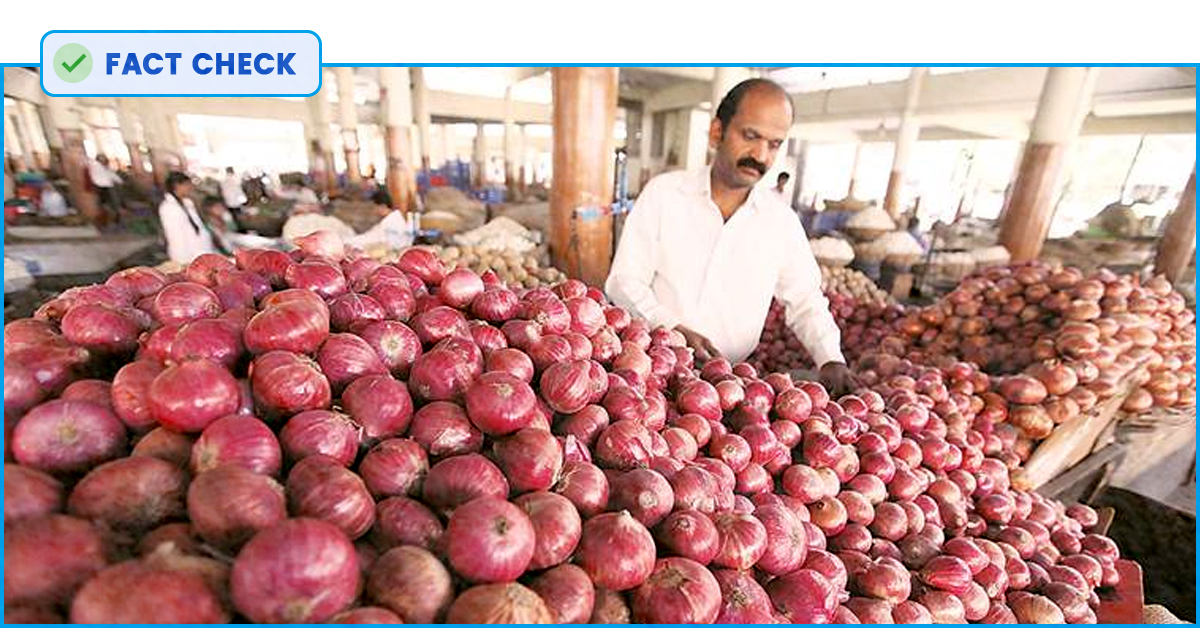[Update: Dainik Bhaskar reported on December 11 that the onion farmer who sent money to the Prime Minister Relief Fund as a sign of protest was sent the money back and then he was further asked to send the money online. We trusted the source and without verifying on our own, we did the story. It was a mistake on our part and we apologise for the same. India Today did a fact check of the same and found that the farmer was indeed sent the money back but was not asked to send it back online. We have updated the article with the correct information.]
Sanjay Sathe, an onion farmer in Maharashtra’s Nashik district, had sent Rs 1,064 to the Disaster Relief Fund of the Prime Minister’s Office (PMO) by a money order on November 29. He had earned that money by selling 750 kgs of onions which he had produced this season. However, the PMO reportedly had sent the money back to the disdained farmer, India Today found out after running a fact check on the claim that the farmer was further asked to send the money online.
Farmer forced to sell onions at low cost
Sanjay Sathe, a resident of Niphad tehsil in Nashik district had produced 750 kgs of onions this season. Sathe was offered only Rs 1 per kg at Niphad wholesale market. NDTV reported Sathe as telling PTI that after negotiating, he sold 750 kgs of onions at Rs 1,064. Each kilogram was priced at Rs 1.40.
What he did with the money is what captured the media glare. As a mark of protest, Sathe donated the entire amount of money to the Disaster Relief Fund of the PMO. He had to pay an additional amount of Rs 54 to send it by money order on November 29. “I do not represent any political party. But I am angry because of the government’s apathy towards our woes,” he added.
Sanjay Sathe interacted with former US President Obama
Interestingly, when former US President Barack Obama visited Indian in 2010, the Union agriculture ministry had chosen Sathe as one of the few ‘progressive farmers’ who had the opportunity to interact with the US President.
For a long time, Sathe has been using a voice-based advisory service for farmers which he uses to get information on weather changes, thereby helping in increasing overall productions. Reportedly, he has also been invited to talk about his agricultural experiments at local radio stations which prompted the agriculture ministry to allow him to set up a stall at St. Xavier’s College, Mumbai when the US President visited. He spoke to Barack Obama briefly with the help of an interpreter.
Farmer woes in different parts of the country
The recent decline in prices of onions has become a reason of distress for India’s farmers. On December 1, farmers held a protest on the Mumbai-Agra National Highway against declining onion prices. Some farmers even tonsured their heads as a mark of protest. While police teams had to rush to the spot to clear traffic jam, the farmers’ concerns continue to persist. They claimed that onion prices were sliding for the last two weeks and the government was unable to stop it. According to The Indian Express, the farmers even submitted a memorandum of their demands to the Sub Divisional Officer. Their demands included procurement of onions by the state government at remunerative prices to make up for the losses.
In Madhya Pradesh’s Neemuch mandi, onions were sold for as low as Rs 50 paise per kg which put local farmers in a state of frenzy. Mewalal Patidar, a farmer, reportedly said, “I would like to throw yield on road instead of selling it for peanuts.”
Not just in Maharashtra, but onion farmers in Karnataka’s Belagavi district also staged a similar protest a fortnight ago and even locked the main gate of Agriculture Produce Marketing Committee (APMC) following the sudden decline in prices. Sugarcane farmers in different parts of Karnataka protested where they were demanding minimum support price for cane produce and payment of arrears by factories. The farmers were demanding MSP of Rs 3,000 per tonne.
Recently, the farmers’ march in New Delhi made headlines as farmers from different parts of the country converged in the national capital to press their demands which included debt relief and remunerative prices for their produce among others.
While activists and some political leaders have slammed the government for laxity in bringing an end to farmer woes in the country, farmers and producers in different parts of the country continue to struggle with a myriad of problems ranging from drought to falling prices.
Also Read:












